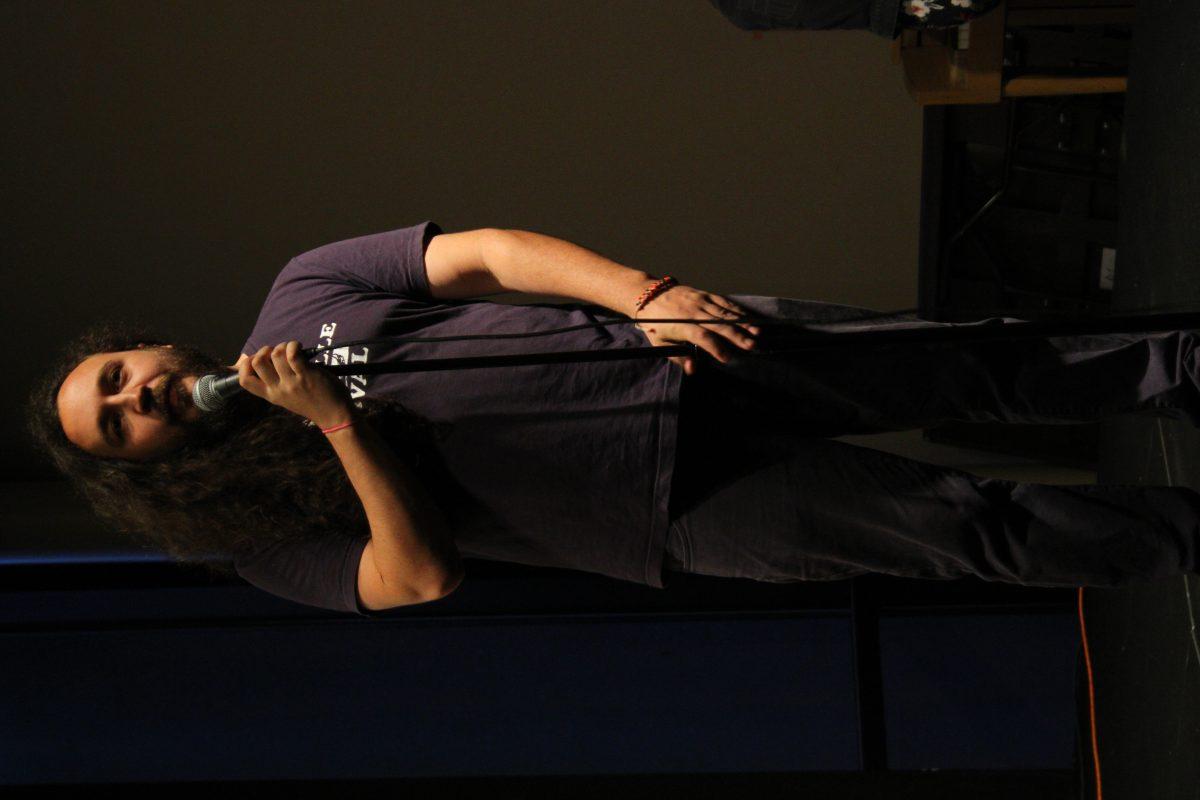On June 30, comedians Paul Varghese and Chris Castles performed in SUAAB’s Double Trouble Comedy Show. The Mercury sat down with the two to discuss their origins, influences and future plans.
What prompted you to get into stand-up comedy?
Varghese: I graduated college with a film degree, but then I took a stand-up writing workshop. From there, I started doing open mic. I never really had a plan to do it as a career. I just started getting work and within a few months I kept pursuing it but it was never a lifelong goal. I kept getting asked over and over again to come back and perform.
Castles: I was performing as a musician and I was in four different bands and there were all these problems with people’s equipment or just people’s schedules and I started to realize I just really wanted to perform. So then I started storytelling and then that evolved into standup.
What were some challenges you faced when breaking into the comedy scene?
Varghese: The biggest one was disappointing your parents because they had no idea where the future was in it. I think the big thing is getting comfortable on stage. That’s probably the biggest thing and I still struggle with it at times. Trying to find ways to relate to random groups of people — whether it be through age differences or racial differences or generational differences — that’s always been the biggest hurdle.
Castles: I think the biggest challenge is just being funny. There are all sorts of other challenges and I think it’s a challenge to stay in a positive mindset and not become embittered. It’s challenging to keep yourself busy and keep working hard at it.
When would you say you got your big break?
Varghese: In ’04, I was on the second season of “Last Comic Standing.” I was around for a couple of episodes. That is basically what gave me enough exposure for clubs to book me as a headliner.
Castles: I don’t know that that’s happened yet, but I definitely am involved in some exciting projects. I’m producing a tragicomic documentary with director Paul Provenza and we confronted another comedian’s childhood sex abuser and got a 5-minute interview. Now we’re using my friend’s story in the footage that we have. In telling that story, we’re hoping to open up the conversation about childhood sex abuse amongst comedians and other performers.
How has your heritage or upbringing impacted your stand-up routines?
Varghese: It’s a big part of it. It’s something I never really knew if other people could relate to it until I started talking about it onstage. Through performing I found out that everyone shares similar upbringings, it’s just my parents have a different way of saying it than other people’s parents. I don’t have to sit there and explain that I’m Indian onstage. As recently as a decade ago, I had to announce it onstage because people weren’t exposed to it enough. Another way my heritage influenced me is I don’t want to embarrass them or feel like I’m ridiculing them. I am talking about them, it’s just where I’m the butt of the joke and they’re the ones winning in the conversation or they’re the ones who look better than I do.
How has your comedic voice changed over the years?
Varghese: I’m more of myself on stage. The material was always funny, but I was never comfortable up there. Back in the day, it felt like I was doing a presentation as opposed to just being in the moment. My writing’s a lot sharper.
Castles: I’ve become better at the craft, so I’m telling jokes differently. I like to think that in the next few years I’ll start to open up as a performer and talk more about what’s really on my mind once I’ve figured out the craft to where it’s more second-nature and where I can be more conversational. I’ve really dedicated a lot of my time to understanding joke structure and timing.
Who would you say are your influences?
Varghese: My biggest influences stand-up-wise are all guys on the local scene. I’ve performed in the same rooms that they have. In front of 300 people in a theater, it’s pretty easy to look like a genius. I love seeing comics struggle — I learn by struggling. On a base level, any Indian comic has to say Russell Peters because he validated what you do. He basically showed that there was a market for it. It doesn’t have to be all Indian people; it can be universal. On that level, he’s somebody I admire.
What are your future plans? Are there any upcoming projects you can tell us about?
Varghese: I’m recording my next album later this year. I’m working with this production company that wants to do specific video content around my material. At my core, I just love performing. As basic as it sounds, as long as I can keep getting paid to be on tour and tell jokes, that’s really what I’m good at.
What advice would you give to people wanting to enter this industry?
Castles: If you want to do stand up comedy, go do it. You just have to do it. Now, it’s about diversity. There are so many different places to go for your media. Write your own sketches, make short films, build websites. Express yourself creatively. You might be doing it forever before you make your big break. But if you work hard, you will find your way in the industry one way or another.







